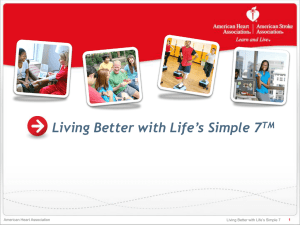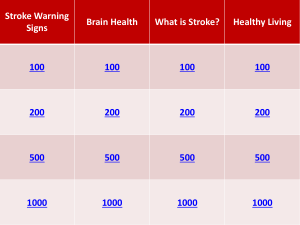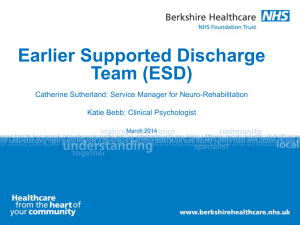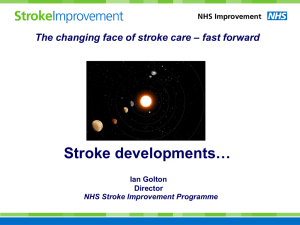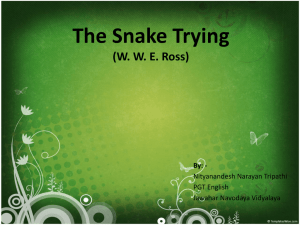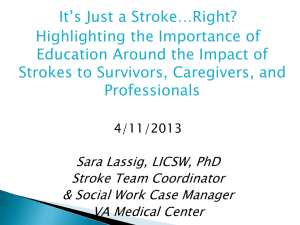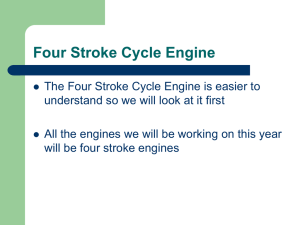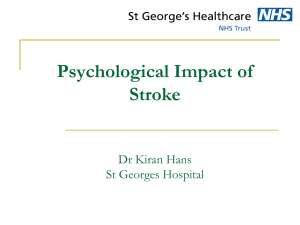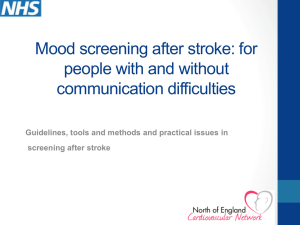Template
advertisement
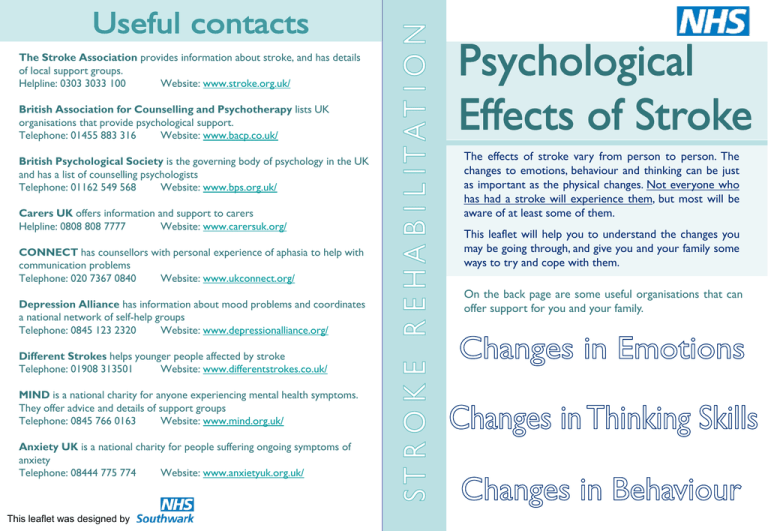
The Stroke Association provides information about stroke, and has details of local support groups. Helpline: 0303 3033 100 Website: www.stroke.org.uk/ British Association for Counselling and Psychotherapy lists UK organisations that provide psychological support. Telephone: 01455 883 316 Website: www.bacp.co.uk/ British Psychological Society is the governing body of psychology in the UK and has a list of counselling psychologists Telephone: 01162 549 568 Website: www.bps.org.uk/ Carers UK offers information and support to carers Helpline: 0808 808 7777 Website: www.carersuk.org/ CONNECT has counsellors with personal experience of aphasia to help with communication problems Telephone: 020 7367 0840 Website: www.ukconnect.org/ Depression Alliance has information about mood problems and coordinates a national network of self-help groups Telephone: 0845 123 2320 Website: www.depressionalliance.org/ Different Strokes helps younger people affected by stroke Telephone: 01908 313501 Website: www.differentstrokes.co.uk/ MIND is a national charity for anyone experiencing mental health symptoms. They offer advice and details of support groups Telephone: 0845 766 0163 Website: www.mind.org.uk/ Anxiety UK is a national charity for people suffering ongoing symptoms of anxiety Telephone: 08444 775 774 Website: www.anxietyuk.org.uk/ This leaflet was designed by The effects of stroke vary from person to person. The changes to emotions, behaviour and thinking can be just as important as the physical changes. Not everyone who has had a stroke will experience them, but most will be aware of at least some of them. This leaflet will help you to understand the changes you may be going through, and give you and your family some ways to try and cope with them. On the back page are some useful organisations that can offer support for you and your family. Adjusting to life after a stroke can be difficult and it can take time for people to become fully aware of the changes. As you recover, it is common to find it hard to come to terms with the differences. In most cases, the sadness and worry associated with having had a stroke will improve as you find your own way of coping, but sometimes it may be necessary to recognize and address unhelpful emotions if they persist. Below are some common emotional problems associated with stroke recovery: Depression occurs in about half of those affected by stroke and generally fades as you and your family adapt to the changes that have happened. Being assessed for the symptoms and receiving early input can make a real difference to your general recovery. Symptoms include feeling sad, losing interest in hobbies, feeling worthless or incapable, and being unable to sleep. It is important to seek help if these feelings persist or get harder to deal with. Anxiety is also common after stroke. It is normal to feel worried or frightened about what has happened and about how it may affect your life. For some people experiencing anxiety, it is enough to learn to focus on what they still have rather than what they have lost, but help may be needed if you are worrying so much that is affecting your everyday life. Mood swings are common and can be confusing and frustrating for everyone involved. They can put pressure on relationships, especially if it is causing outbursts of anger. Occasionally the opposite can occur, where emotions become less apparent, and it is difficult to experience the same highs and lows as before the stroke. 2 For you: Recognise the problem when family members point out that you may be acting differently, and look for ways of compensating for the change. Keep a record of when you think you acted in a positive way and when you didn’t.This way, you can look for triggers and try to avoid them. Trust relatives and use them to help record how you’re doing. Find ways of explaining to people why you acted in a certain way, and that it is related to your injury. Learn to walk away from situations where you think you will overreact. Find a balance between keeping active and giving your body enough rest.Take small steps to recovery and don’t expect too much too soon. For your family: Be accepting of the changes as they will become less obvious over time. Try to think of how they are the same, rather then how they are different. Give direct feedback in positive and negative situations. Seek help if you think challenging behaviours are compromising your relationship or safety. Your GP or specialist can refer you to services to help you deal with the behaviours. 7 Memory is the most common cognitive problem following stroke. Forgetting to do things, or forgetting details of conversations may become more frequent after a stroke, but more distant memories are not usually affected. Sometimes it becomes more difficult to learn new information or remember the order in which things happened. For you: Tackle mood changes such as anxiety or apathy and try to stay calm as these can have a negative effect on thinking skills. Chunk information into bite-sized pieces and rehearse it, or relate it to things you remember easily such as brushing your teeth. Concentration may also be harder after having a stroke. You might find that your attention wanders while watching TV or reading. Concentration is closely linked to memory, since we are more likely to remember things that we are able to pay full attention to. Form an unusual mental picture of the things you want to remember. Use rhymes or mnemonics to remember sets of things in a category. Communication, including speaking, understanding and writing, is often affected by a stroke. In addition to aphasia, a condition affecting the ability to process language, distractibility may also affect the way you communicate. Some people find it difficult to move from one topic to another, and others find it hard to think of the right word. Use the alphabet as a prompt to help you remember a name or word. Practice speech exercises and consider joining speech support groups. Set yourself goals to improve whatever it is you have trouble with. Problem-solving ability is sometimes affected and can be seen in lots of ways. Some people have poor awareness of their problems, find it harder to plan things or shift their attention from one thing to another. Others find it more difficult to judge what is acceptable, understand complex arguments or be sensitive to other people’s emotions. For your family: Minimise distractions such as the TV, and encourage them to do important things at a time when they are most awake. Neglect is the tendency to be less aware of one side. It may only be picked up by friends or relatives if you leave food on one side of your plate, or fail to see or hear things on one side of your body. Keep things on their neglected side and use written cues to remind them to use that side. Adapt the environment such as keeping a notepad by the phone or getting a notepad for them to write down important information. Apraxia is the term used to describe the control of action, which can often be more difficult after a stroke. You may find that you are clumsier, and find it harder to do things with your hands than before. Give positive feedback for progress, and resist pointing out mistakes. 4 5 Disinhibition means a decrease in the ability to control behaviour, and can happen after any sort of brain injury. It can result in impulsiveness or irritability and a disregard for social norms. You may be less aware of the problem, but family members may find the behaviours embarrassing. For you: Personality change refers to a range of changes that may occur after stroke. You might be aware that you’re acting differently than before, and this can be difficult for both you and your family. You might be more easily annoyed, have a different sense of humour, or show less interest in hobbies. The differences may be due to changes that have occurred in the brain as a result of the stroke, or they could be related to the process of adjustment after having had the stroke. It is most likely that it is a mixture of the two, but it is often the case that the changes will become less obvious over time. Deal with problems rather than ignore them. Emotional problems are much easier to deal with if they are identified and faced at an early stage. Apathy is a lack of motivation or enthusiasm, and can often be confused with depression. It can be difficult for family members to understand, and so telling them how you feel is important. Activities that you used to be absorbed in might suddenly be of no interest to you. Apathy can have a negative impact on recovery due to a lack of motivation in therapy sessions, so it is important to make efforts to overcome it. Fatigue is extremely common after any kind of illness, but is particularly associated with brain injury. It may feel like you’re tired all the time, or that you need a lot more sleep than usual, which is normal. It is important to distinguish between apathy and fatigue, as fatigue is the body’s way of trying to rest and recover, whereas apathy is a psychological lack of motivation and is not related to tiredness. 6 Look after yourself by keeping active and eating well, which both have a positive effect on mood, as well as keeping your mind active. Stroke support groups are run all over the country and are a way of meeting people in similar situations. Some details are on the back page. Be realistic. It’s important to accept that some things are more difficult and to adjust your lifestyle, whilst realising what you can still do well. Rank your priorities and gain perspective by remembering them when you are sad or lacking motivation. Talk to your GP if you think things are getting on top of you. They can refer you to local services that can help and give you extra information. For your family: Encourage them to talk to you and find ways of coping together. Set achievable goals and record when and how they achieve them to highlight their progress. Structure the day to keep them motivated, but recognise when they are tired. Organise outings tailored around their hobbies and interests. 3
